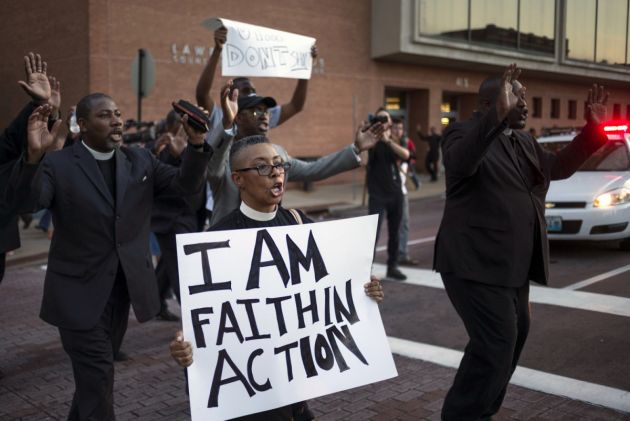Americans feel need for the religious to speak on political issues: Survey

Nearly three-quarters of the U.S. public (72 percent) thinks religion is losing influence in American life, up 5 percentage points from 2010 to the highest level in Pew Research polling over the past decade.
They also believe it's time that churches in the United States stand up and express their views on political issues, the survey by Pew Research reveals.
The Pew survey was conducted among a sample of 2,002 U.S. adults and has a margin of error of /- 2.5 percentage points after being carried out from September 2 to 9.
The survey tackled issues such as views on same sex marriage, faith of political leaders, church endorsements and party affiliations by religion.
On the question of the difficulty of being religious in the U.S., 53 percent of Evangelical Christians believe that the situation has not changed much.
At the same time 18 percent of the Catholics feel it has become more difficult to be religious while 31 percent of atheists feel it has become easier.
The findings of the survey also reveal a pattern in American politics: During conservative administrations, the public is bent towards becoming more liberal, and during liberal ones, more conservative.
In this case, 30 percent feel that the administration of President Barack Obama is friendly towards religion. This a marked negative seven change from the survey conducted since the start of Obama's tenure in 2009.
A report from the Los Angeles Times said the shift may be the result of the long-running fight between the administration and conservative religious groups over health insurance policies for contraception.
Also mentioned are the efforts of Republican leaders to portray Obama as waging war on religious belief.
The 72 percent who feel that religion is losing influence in American life compares to only half of Americans who felt that way in 2002.
During the presidency of George W. Bush, more Americans felt that religious groups should "keep out of political matters" and less felt that churches should "express their political views."
The views have changed since 2010 when about half of Americans said that churches and other religious institutions should express their views while half said they should keep out.
In terms of discrimination, religious Americans feel that there is a growing intolerance towards them.
Half of white evangelicals felt that they face a "lot of discrimination," while fewer than one-third of the public at large concurs.
The case is similar with Catholics. Thirty percent felt that they are discriminated against while only 19 percent of the general public sees a pattern of discrimination.
The survey found a slight drop in support for allowing gays and lesbians to marry, with 49 percent of Americans in favor and 41 percent opposed - a 5-point dip in support from a February Pew Research poll, but about the same level as in 2013.